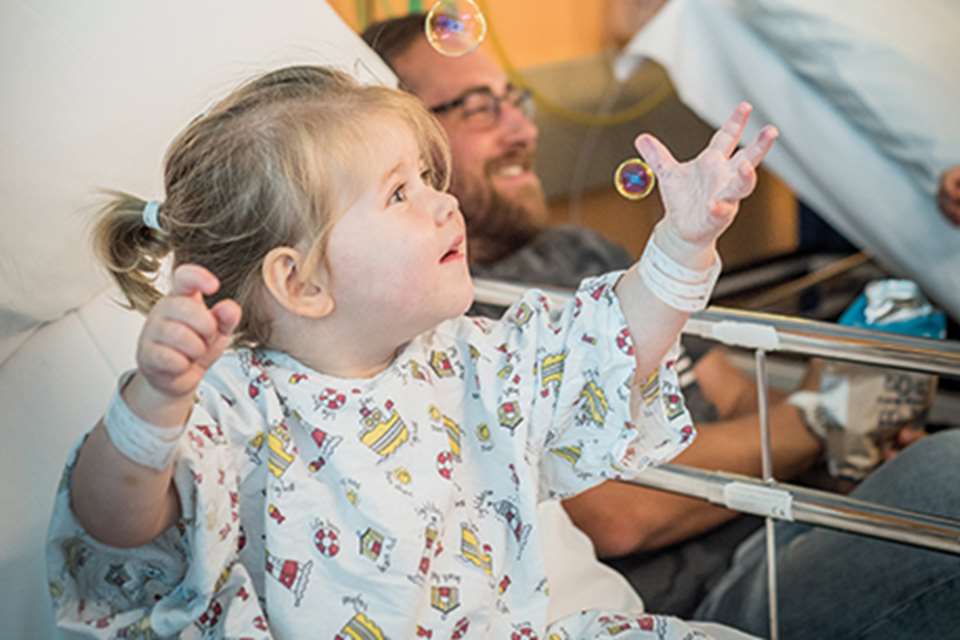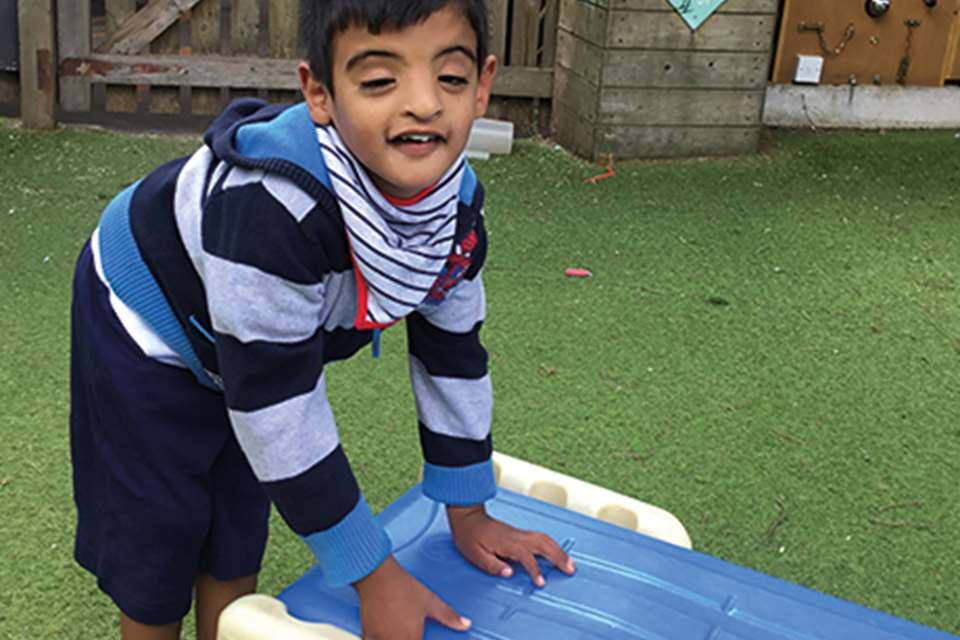Inclusion: Birth to threes - We belong
Annette Rawstrone
Monday, March 18, 2019
How research among parents in East London led to a new way of providing SEND services. By Annette Rawstrone

Download the PDF of this article
Having ‘somewhere to belong’ is how one parent described the ideal early intervention provision for their child when questioned for a research project aiming to improve local services for the families of young children with emerging or identified additional needs and disabilities.
Zoe Wells, specialist early years researcher at Whitefield Research and Development Centre, which is part of the Whitefield Academy Trust, undertook the research in order to address the lack of early years specific support for children with SEND from birth to three in Waltham Forest, London. Her project led to baby and toddler groups based on the ‘carousel model’, a multi-agency approach established in New Zealand.
‘By intervening early, evidence suggests that better outcomes will be achieved, reducing demand on costly acute services later on,’ she says. ‘Securing this provision would enable practitioners to meet the developmental needs of eligible children and benefit the parents and wider family to help the child reach their potential.’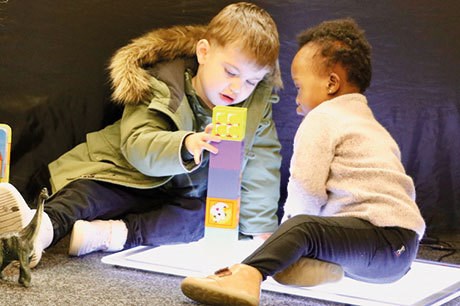
PARENTS’ RESPONSE
One mother had positive memories of accessing a small specialist playgroup when her child was very young, where parents were not only supported professionally but also met other parents and children in similar circumstances.
Another described a specialist play session she attended as ‘a life saver’ because it was somewhere that she could be without worrying about her child’s challenging behaviour.
Being embarrassed was a recurring theme when Ms Wells asked parents why they had not accessed particular services. They spoke of feeling uncomfortable and not ‘fitting in’ when attending mainstream activities both before and after their child’s diagnosis. One participant described worrying about other parents’ attitudes and their perception of her child with SEND; others, who were initially keen to access mainstream activities, found it a challenge to repeatedly explain why their child looked or acted differently.
‘The parents reported that they would value a robust, sustainable provision that is parent- and child-led, family-centred, local, accessible and fun. They preferred early intervention that improves the child’s well-being and development but also looks at the benefits of interventions and support for the whole family. The families wanted a service with a multi-agency team with excellent communication so that they would only need to tell their story once,’ Ms Wells says.
‘The parents liked the idea of a provision in one place where experienced and knowledgeable professionals could come together with parents to provide inclusive activities. They wanted the staff members to be welcoming with an understanding of disability.’
Parents highlighted the need for:
- professionals who start with the individual child’s strengths rather than fit them into mainstream planning
- flexibility in order for families to ‘get there in their own time’
- private space where parents can speak to professionals
- separate agencies working together and linking families with additional support.
Ms Wells also consulted local professionals about what an ideal service would include. ‘They suggested introducing an early years provision, with experienced SEND leadership and strong partnerships with key agencies, creating smooth pathways. A service with experienced and specialist workers who understand the requirement of families with children with additional needs and which provided a range of activities, equitable with non-disabled siblings and peers,’ she says. ‘An optimistic starting point suggested by some would be a provision that starts with early identification followed by meaningful early intervention.’
Analysis of the research led to the identification of some common themes of a parent- and child-led resource that provides:
- Specialist play opportunities.
- Home and centre-based provision.
- Training and awareness.
- Professional partnerships.
- Links to early years and SEND agencies.
- Empowerment through a key person approach.
- Resources within the Academy that are maximised.
Through researching evidence-based international best practice, Ms Wells identified an approach used by the Champion Centre in Christchurch, New Zealand on which to base Whitefield Academy Trust’s early intervention.
‘The Champion Centre focuses on bringing together key agencies and allowing families to get together with professionals to plan for their child, thus building trusting relationships,’ she explains. ‘This multi-agency, family-centred approach improves service delivery and co-ordination.’
Ms Wells decided to adapt the centre’s ‘carousel model’ – where families can see all the relevant specialists in one place – and approached Lloyd Park Children’s Charity in Waltham Forest, which delivers the universal activities across the local authority’s Children and Family Centres, to collaborate, along with input from speech and language therapists from the HENRY charity and SENDias, a SEND advice service.
Together they set up an 18-week pilot for the child- and family-focused play group in February 2018, which they named Somewhere to Belong. Following its success, weekly groups were introduced into four neighbourhood Children and Family Centre hubs across the LA.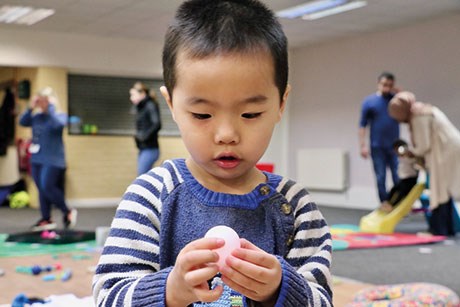
THE SERVICE
Somewhere to Belong aims to replicate a mainstream baby and toddler group with toys and resources purposefully set out to help practitioners play with children in order to assess them and set individual plans and targets.
The four Children and Family Centres make available play areas and resources and provide two early years practitioners for each session, and a family support worker for one of the sessions. A range of specialist professionals also attend depending on the six-week ‘carousel’ cycle:
Family support including a family support practitioner offering one-to-one support around parenting and family life and signposting to local services and networks.
Two sessions based on child development including professional support for parents to identify developmental areas of concern. The Early Years Developmental Journal is used to record, celebrate and support children’s progress.
Speech, language and communication with therapists supporting parents and practitioners to identify specific areas for development and identify ways to promote communication during everyday play and routines.
Family rights with a SENDias representative giving information on support and benefits.
Transition and next steps into education with support offered on educational choices, both mainstream and specialist within the maintained and PVI sectors.
Families are referred to the groups from speech and language therapists, child development teams and portage, with the two-year-old check often being a trigger. A maximum of ten families attend at a time and are able to join the group at any point of the ‘carousel’. ‘We’re keeping the groups as small as possible because families said they didn’t want to go to regular baby and toddler groups because they found them overwhelming,’ says Ms Wells. ‘It also [gives] practitioners time to liaise with parents and capacity for siblings to join in.’
The groups have been so popular that many had waiting lists before they opened. ‘I’m very passionate that we don’t want to make families leave, because I’ve learnt that it can be very traumatic if they still need the support,’ Ms Wells explains. ‘It tends to be a natural move as the children start to attend nursery or, in cases such as children with speech and language delay, they have caught up and no longer need the group.’
Around 80 per cent of the children attending the groups are on the autism pathway, with Ms Wells feeling they need to find ways to target children with other complex disabilities because there are families who remain isolated.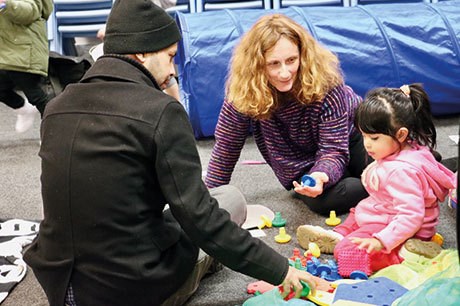
REFLECTION
Ms Wells is now in the process of writing an evaluation and has identified added advantages of the groups, such as assisting children with their transition into nursery.
‘We are able to provide the nursery with the child’s developmental assessment and targets and have got their Baseline ready, which is well-received,’ she says. ‘In the future I’d like to develop follow-up visits to see how the children are doing.’
At the moment, professionals attend the groups as part of their remit, but there are plans to bid for a budget in order to get more specialists involved, such as physiotherapists and support for children with Down syndrome.
‘I believe my research has enabled me to create a provision that supports children, families and professionals and offers them what they need at this critical time. The approach has provided effective early intervention, enabling the children to reach their potential. It has also supported effective partnership working with parents,’ reflects Ms Wells.
‘We’ve had other local authorities observe the groups because they are interested in creating similar schemes. I feel the carousel model can be adapted easily, especially due to it not needing a big budget.’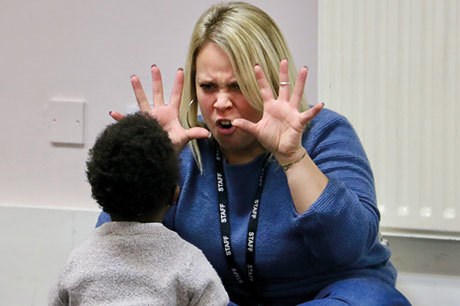
MORE INFORMATION
For further information on the Somewhere to Belong model, contact Zoe Wells, z.wells@whitefield.waltham.sch.uk
Blackburn C (2016) ‘Relationship-based early intervention services for children with complex needs: Lessons from New Zealand’, Journal of Children’s Services, 11 (4). Available at https://bit.ly/2J5TozS



